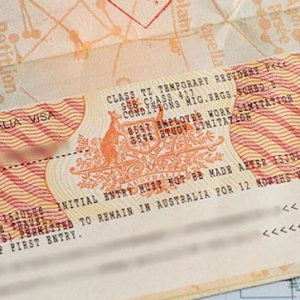
Scammers infiltrate every industry and unfortunately the medical industry is not immune. A scam can be defined as an attempt to intentionally mislead people in order to steal money, property or personal information.
Work visa scams typically involve false promises of permanent residence and employment. People of all backgrounds, ages and education level can be the target of these scams. Such scams may be conducted via email, post, telephone or even in person. Work visa scams typically involve an offer of a visa in return for personal information or payment, which can include
extracting a promise from you to pay back part of your salary once a position has been confirmed. The person making the offer may claim to know someone within the government who can arrange the visa or that they have a special relationship with the relevant authority. If you are offered a once-in-a-lifetime opportunity or told that your only way to migrate is through an individual, it could be a work visa scam.
Any requests asking for your original documentation to be sent should be treated with caution. To protect yourself from work visa scams, original documents should only be submitted as certified photocopies or in person to be viewed and returned.
You should also be suspicious of anyone asking you to lie on an application form, or who provides questionable advice. Take care what information you provide over the internet and verify identities or job offers directly with any organisation before going further.
Be especially cautious about any visas you have not personally applied for. If you are seeking a visa, appraise yourself fully of the application process involved so you have a complete understanding of what is required.
If you are using a registered migration agent, first confirm they are registered with any relevant organisations such as the Migration Institute of Australia. If you suspect you have been the victim of a work visa scam, or are concerned about suspicious behaviour, you should initially contact your local police.
In Australia there is legal protection for overseas professionals seeking work and it is unacceptable for sponsors, nominators, employers or other third parties to make a personal gain from their position.
Likewise it is unacceptable for potential visa holders to offer a benefit to an employer in return for a work visa, other than legitimate work through the skilled work shortages programme.
It is important to note that the Australian law allows for cancellation of visas which are later found to have been issued as a result of the visa holder engaging in paying for visa sponsorship conduct.
